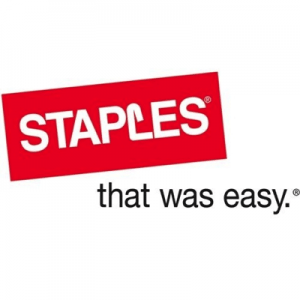On Monday, I posted one of my pet peeves on Twitter: I hate when people look at the hard costs (e.g gift card activation fees) to calculate their manufactured spending costs when relating to award travel (whether it be for flights or hotels) rather than the opportunity costs. This has been on my mind recently due to the change to the Wyndham rewards program that lets you book any hotel for 15,000 points. Both Wyndham credit cards earn 2x points on all purchases, so you basically need $7,500 in spend to receive a free night at any Wyndham property worldwide.
I’ve seen a lot of readers comment on other blogs that they are able to manufacture $7,500 in spend for crazy low amounts. My argument is that at the very minimum you should be looking at how much you could have earned if you used a 2% cash back card. Some people agreed with my premise (e.g Freequent Flyer) while others disagreed (e.g Trevor from Taggingmiles).
Hard Costs
If you look at just your hard costs of manufactured spending award travel, it presents a very positive picture. If we go back to the Wyndham example and look at the activation costs of 15 $500 gift cards. This would range from $3.95 to $6.95 each (or $59.25-$104.25 per night).
I can think of two reasons why people like to use this method when thinking about their cost:
- It’s how much they monetarily paid for those points
- Would they have actually bothered if they were just getting 2% cash back for a profit of $45.75 to $90.75? If not, isn’t the opportunity cost irrelevant?
Opportunity Costs
Whenever I look at a new credit card’s minimum spend requirement or how much it would cost to manufacture award travel, I always compare it to a 2% cash back card. That’s because I know that is the bare minimum I could be getting if I didn’t put the expenses on that credit card.
For example a cash sign up bonus of $300 sounds great, but if it has a minimum spend requirement of $10,000 then the bonus is actually pretty average. That’s because if I put that same $10,000 spend on a 2% cash back card I’d earn $200 anyway, so the “true” value of the sign up bonus is really only $100 (plus whatever points/cash back you earned from the $10,000 in spend).
We can also use this when thinking about manufacturing spend for free hotel nights or flights. Again, let’s look at the Wyndham example. We need to spend $7,500 to get enough points for a free night, if we put that same spending on a 2% cash back card we’d earn $150.
My argument is that when looking at the cost of that free award night, at bare minimum you should be looking at what you’d get back on a 2% cash back card. After all, I could use that $150 to book a hotel elsewhere. Now the 2% figure should only be used as a baseline, as we all know it’s possible to get more than 2% on purchases when you have a category bonus (actually it’s possible to get more than 2% even without a category bonus).
There are lots of elements you should take into account:
- Time: Milesnomics might kill me if I didn’t mention this, after all he wants a credit card that’ll give him more of it and he has blogged about the importance of calculating it, multiple times. Your time is limited, you can only do so many things. If you could be spending your time doing something else more valuable than running around manufactured spending, then you need to take that into account.
- Credit cards: Not everybody has access to the same credit cards, this can be due to credit score issues or the fact that you simply haven’t applied for that card due to other cards being a priority.
- Limits: Everybody is going to have a limit on how much spend they can manufacture. Your limit might be due to time, unloading methods, credit limits or how much money you are happy to float.
I generally just use the 2% figure as my absolute minimum value I should accept, knowing that I’ll definitely be able to get at least that much. Because of this I don’t find manufacturing spend for Wyndham really makes sense, I prefer non chain hotels anyway and most of the time I’m able to find something I like for under $150. When I MS, I’m usually getting much more than 2% as well, so it makes the value proposition even worse for Wyndham.
Final Thoughts
Freequent Flyer has a great series of posts on imputed redemption values for hotels which talks more about how much spend you need to manufacture for each hotel chain and the associated opportunity cost. Trevor from Taggingmiles will also have a post up in the next couple of days about why he disagrees with my point of view which I’m looking forward to reading. It’ll be interesting to see if he can change my mind.
Regardless of whether this topic interests you, both of those blogs are well worth visiting on a regular basis. What are your thoughts? How do you calculate the cost of your manufactured spending? Let me know in the comments.
Also if you’re another blogger and interested in writing a counter point (like Trevor), let me know and I’ll add a link to your post here as well.






I am salaried and usually go to the mall for lunch once or twice per month with co-workers, or to pick up something for myself or the family. I can buy 10k worth of VGC’s in 15 minutes. I then eat lunch at locations near two large stores where i can unload 5k per month at each. I am next door getting lunch already, what’s another ten minutes? I use this quick turnaround MS strictly on airline miles and hotel points cards. Most other regular monthly spend goes on an Amex cash back card, or Barclays cash back card. I do nail the Chase Ink 5x categories like my cell phone/internet, the occasional VGC deal at staples, etc…
I could use a 2% cashback card for the 10k per month and make $200 but I have found that I get much more than 2% value (especially on airfare) for one to two hours per month at places I frequent anyway. I get a good mix of hotel points, miles, and cash back with very little effort. Everyone is in a different situation with different goals I am sure. The trick is to maximize your time/effort so opportunity cost is as small as possible. If you have to go get a shirt at the mall, buy your gift cards while you are there. If you have to go get underwear at WalMart or Target, unload the cards. Nobody should be making special trips across town wasting time and resources (gas) just to MS. That is unless it’s for the Staples VGC deal where you actually make money 🙂
Im thinking about trying this out. I have spent the last 2 weeks researching MS. But I haven’t found one article that tells you what to do with all the open credit cards. Do you cancel after the bonus that dings your credit and you get dinged for too many open cards. So can you help out a noob?
Am I missing something?!
Why is the physical cost of GCs included in the Wyndham example but most people don’t include it in the 2% example? If we are comparing the same methods then you are not earning 2% when MSing via GCs.
You mention it here:
Would they have actually bothered if they were just getting 2% cash back for a profit of $45.75 to $90.75? If not, isn’t the opportunity cost irrelevant?
but mostly everyone is using the example of earning $150 when MSing $7500.
Also with your example of the $300 bonus for $10,000 compared to $200 “earned” with a %2 card….first of all the %2 doesn’t have a bonus and if you are MSing that $10k you’re likely only profiting ~%1.
I know the gist of the post is about comparing more than hard costs but everyone is being a little inconsistent with their comparisons of hard costs.
The idea is is to compare MS with a rewards card (Wyndham in this case) versus a cashback card (2%). By doing the exact same MS with both, so the “Hard Costs” end up being the same with either method and can be tossed out for comparison’s sake.
For example:
$7,500 of MS on the Wyndham card will result in 15,000 points with “X” amount of hard costs.
$7,500 of MS on a 2% cashback card will results in $150 and the same “X” amount of hard costs.
Because the hard costs are the same, it’s ok to compare the 15,000 points versus $150 on even ground.
I see your point. It makes a lot of sense, I guess it’s just in my mind there is something different about MSing for points vs. cash because of the back end.
To me, it seems silly to say you’re earning $150 when your profit is fixed at $45-$90 compared to the variable redemption value of most types of points.
But again, I guess that’s the point of the post. Thanks for your example.
I calculate my costs vs benefits/perks I get the same as you do. My anywhere else card now is Citi 2xCB so with your example of $7500 manufacture spend on GCs, with the $150 CB I’m earning, I can very well find other hotel/resorts that we like without paying that much. It means I have more $ in my pocket for other travel expenses. But if we’re talking about other hotel chains where the rate per night is much higher that my 2% CB earnings wouldn’t be enough, I may put (some) spend on that hotel CC. That’s not even guaranteed because we rarely stay in top tier hotels unless I have rewards from a sign up bonus that can be applied to any category of that chain.
It all boils down to different accommodation preferences. While others prefer staying in luxurious hotels, our family don’t put much premium on it because we’re out exploring the city for most part of the day we’re in so we stay in hotels that are good enough to meet our basic needs while traveling. We’d rather not pay for amenities we will not enjoy/use. As always, to each his own.
Great Post!
I think that, for the economist’s rational person point of view, your view vis a vis opp cost is right on.
From reading the previous comments however I think it is very interesting how many of the posters seem to not want to cross the mental wires of lost money earned and “free” travel. While this doesn’t comport with my way of thinking; the general sense I get from the other posts that disagree with your opp cost analysis is that they A) don’t find MSing for 2% exciting enough and/or B) wouldn’t squirrel away their 2% for travel but lock it in with points.
I also however, get the sense that figuring out the actual opp cost of a deluxe hotel stay/first class flight is kinda a bummer and destroy’s the fantasy that you got this great thing for super cheap/beat the system/stuck it to the man.
Thus, I’m curious as to what the economic value of maintaining this fantasy might be? Clearly it has value as if you are able to make $40-50/hr it would probably be much cheaper to just pay for the effin trip then to read all the blogs and amass all the points. Such is the fantasy?
Fellas, fellas…who said you have to choose one or the other. I prefer to max out my 2% card and when that’s waiting for charges to post, I can always squeeze in some points MS.
this
“I generally just use the 2% figure as my absolute minimum value I should accept, knowing that I’ll definitely be able to get at least that much. Because of this I don’t find manufacturing spend for Wyndham really makes sense”
Depending on your income and net worth, you can decide whether you shoudl buy a flight that costs $2000 in opportunity costs or a hotel room that cost you $300 in opportunity costs makes sense. Even if they retail for $5000 or $800 respectively.
For my income level, I can splurge on a luxury trip every year but I usually collect cashback to improve my net worth. I don’t MS for 2% though. Not worth it unless it is 3% (discover it) or higher.
I have to disagree with you. I see your point and I myself usually try to put nominal values on points and miles as I’m earning them. BUT spending one(or more) nights at a luxury hotel is never the same as having cash to pay for them. I might have money to spend 500$ per night to stay at a hotel but I would never do that. But if I could manufacture 7500$ to get a night at a top Wyndham hotel, I’d probably do it depending on the circumstances.
My point is that if it cost you $150 in opportunity costs for that $500 per night hotel, would you pay $150 in cash for it? If the answer is no, you shouldn’t be staying there because that’s the “real” cost of that “free” night.
I understand. But let me explain another way. Earning Wyndham points is like putting money in a *travel* savings safe box. You cannot do anything else but travel with it. If I earn 150$ cash back (even something like arrival travel statement credit), I’d consider it as some sort of income which does not necessarily lead to new travel or entertainment opportunities.
Likewise, my 100k+ arrival miles did not create new travel experiences for me since I have always something to redeem them for. They went straight to my savings.
Yes, I would be very happy to spend $150 a night for a $500/night hotel room! Since that doesn’t happen, I MS for points/miles. For me, it’s more about flights than hotels. When I’m flying 18 hrs to JNB, I don’t want to be in coach. Been there, done that. MSing miles allowed me to get two of us RT in J; DEN>IAD>JNB. That beat the hell out of my first flight to South Africa. It’s unlikely that I could MS enough CB in a reasonable amount of time to accomplish my goals.
That’s fine and I’m not saying that you’re wrong in thinking that. But when you stay at that $500/night hotel room your cost was $150, because you could have had $150 in cash if you didn’t MS for those points.
I have you agree with you, opportunity cost is always on my mind when I’m earning and burning points. I try to always weigh the points I’m earning versus 2% and double check that I’ll actually get more value than that out of them. That usually means going for aspirational properties and flights, but that’s exactly why I started this hobby to begin with.
The time investment is something I keep debating with myself, but as others have said, I feel I might waste most of the time if I wasn’t earning some points/cash with it. At least so far, I really enjoy the hobby and have found a good niche with gift card churning from home to fill all my minimum spend and MS needs. I’m definitely not afraid to just stick with cashback if I don’t have an upcoming trip in mind, can’t beat the flexibility of cash even if I’m giving up some potential future value from miles/points.
Yes, thank you! Finally someone (besides Milesnomics) is talking about this! The economist inside me dies after time I see people so happy they got to save $4-5 by spending an extra hour driving, waiting in line, and hassling employees at Walmart! Is your hour really worth only $4-5?! Then may be you should invest your time into the social economy sector like Uber or Lyft or Instacart and you’ll be making double that much for the same amount of time.
is it 44 cost or 7$ cost for a 200$ gift card?
http://tm.wandrhost.com/2015/05/economics-of-costs-of-manufactured-spend/